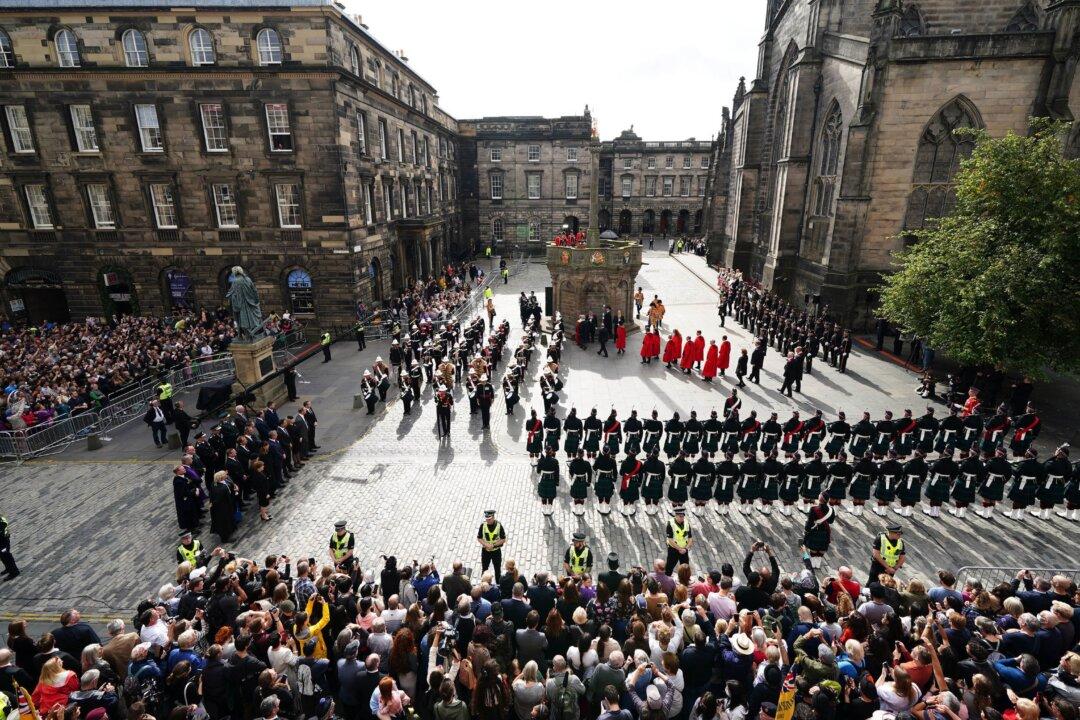The UK’s King Charles III was formally declared sovereign on Sunday in Scotland, Wales, and Northern Ireland.
Wellwishers gathered as the accession proclamations were read out across the UK’s four nations, but the ceremony was disrupted in Scotland, where “God Save the King” was met with booing from hecklers and an anti-monarchy protester was arrested for breaching the peace.





